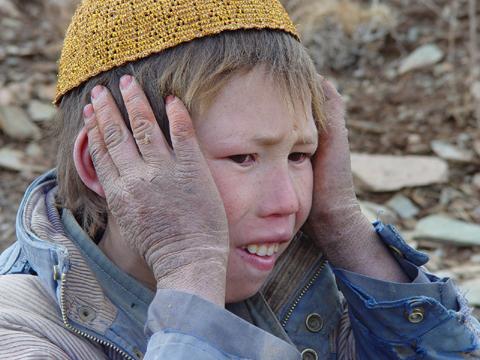
Afghanistan not a nation, just a battlefield for the West
The West needs to consider the needs of Afghanistan, not just their own
Reading time: (Number of words: )
by Massoud Qiam
edited by Emily Withers
As strongly as the United States and NATO have worked to remove al Qaeda and the Taliban from Afghanistan, Pakistan is working equally as hard to keep them securely in place. The attack last week at the Afghanistan-Pakistan border in Nuristan province, killing 8 U.S. soldiers, was the deadliest attack on U.S forces in over a year. This is exactly the type of militancy the Pakistani secret service is planning and overseeing— attacks specifically directed at discouraging foreign governments from sending more troops.
The Taliban is not completely controlled by Pakistan, but they do utilize military intelligence from and are financially supported by Pakistan. Pakistan plants the idea, for instance, of attacking NATO troops in the north or killing soldiers from nations— such as Germany, Italy, and France— that are already debating whether or not to pull troops out. They are putting more pressure on NATO as well, with the goal of forcing the organization out of Afghanistan.
Though it may appear as a diversion, the Pakistani government did not invade the Swat Valley and kill thousands of Taliban soldiers to convince the west that they are actively fighting the Taliban. Pakistan, rather, simply does not want the Taliban in their country. The Pakistani government will not kill Talib in Afghanistan, only those within Pakistan.
Pakistan’s government benefits from the support of Afghanistan’s Taliban. When the Taliban gained troops and power, they began to disobey Pakistan’s orders. For instance, Pakistan supported the U.S government’s request that the Taliban hand over Osama Bin Laden, but the Taliban did not comply. Even if the Afghan Taliban obeys half of Pakistan’s orders, the relationship will remain in tact. Pakistan doesn’t want to control the Taliban completely, but it’s important to them that they are able to direct Afghanistan for their own benefits.
Just as taking tablets for a headache has side effects on other parts of the body, Pakistan’s encouraging of Afghans to become Talib has side effects within Pakistan. Keeping border areas secure is part of the plan to retain the insurgency in Afghanistan. In order for Pakistan to do this, they must encourage people living at the border between the two countries to become extremist fighters. The violence in these areas spills over onto Pakistan soil.
Sending in more foreign troops will assist those currently stationed to remove Talibs, but it won’t completely fix the situation in Afghanistan. A fundamental problem is that American, European and even Afghan leaders don’t recognize Afghanistan as a nation— they think of it as a battlefield. They strategize around their own political agendas, not around the well-being of the people of Afghanistan. It is imperative that they think about justice in such a socially conflicted country.
Britain and the U.S possess differences in their visions of strategy. Likewise, other European countries have their own points of view about Afghanistan, though they mostly stand on common ground in their support of human rights and democratic values. Negotiation with the Taliban is not the only issue. Success requires that foreign nations work together to devise strategies to make the country a safe zone. Should we control Afghanistan with the Taliban, or should we bring together Mujahedeen and the Taliban and make a coalition government? These are questions that must be asked and collectively decided upon.
Every day, we are witness to mass murders. Who commits these crimes? They are, of course, either in Mujahedeen or the Taliban. The Taliban is mainly supported by southern and eastern tribes, and the Mujahedeen are supported by northern and central tribes. These tribes fight one another for power.
Numerous Afghan politicians are not physically in the Taliban, but their sympathies lie with and support the Taliban. The Afghan government will never be able to talk directly with the Taliban, but we can force these corrupt leaders out of the government. If we bring justice, the Mujahedeen and the Taliban will not be able to solicit support from the people, and Afghan citizens will realize that criminals must be removed from within the governmental system. We must erase all opportunities for Pakistani politicians to abuse the Afghan people by pitting them against each other.
It is possible to accomplish this with the support of the international community. The people of Afghanistan cannot do it alone. Stability and security can be kept with short-term coalition governments. We have to see the problem from the root. Mujahedeen and the Taliban are playing the roles of political parties, but they are both criminal organizations that have been committing war crimes for the past 30 years. President Obama must consider transitional justice, and if the international community doesn’t negotiate with the Pakistani government, the problem of the Taliban will remain.











